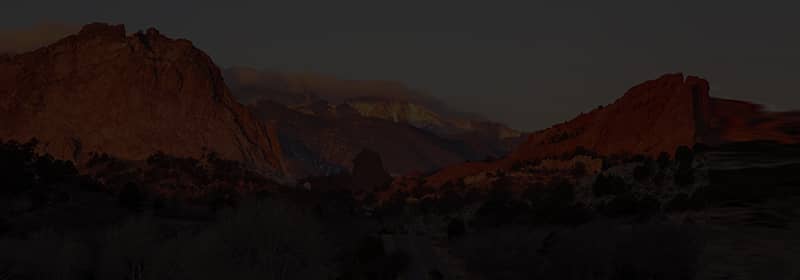Colorado Knife Laws
If you’re a resident of Colorado or planning a visit, having an understanding of the state’s knife laws is crucial for making sure your possession and use are lawful. The statute defines a knife as:
“Knife” means any dagger, dirk, knife, or stiletto with a blade over three and one-half inches in length, or any other dangerous instrument capable of inflicting cutting, stabbing, or tearing wounds, but does not include a hunting or fishing knife carried for sports use. The issue that a knife is a hunting or fishing knife must be raised as an affirmative defense
Under Colorado law, the distinctions between various types of knives is significant:
Knives You’re Never Permitted to Carry: In Colorado, some knives are never legal to carry. This includes ballistic knives and blackjacks. Ballistic knives are designed with blades that can be forcefully ejected from the handle by mechanisms such as a spring-loaded device or an explosive charge.
A person who knowingly possesses a dangerous weapon commits a class 5 felony. Each subsequent violation of this subsection (3) by the same person shall be a class 4 felony.
As used in this section, the term “dangerous weapon” means a firearm silencer, machine gun, short shotgun, short rifle, or ballistic knife.
Knives You Can Carry Openly: In Colorado, most knives can be carried openly. This essentially means you’re allowed to openly carry any knife as long as it doesn’t fall into the illegal category (ballistic knives or blackjacks).
Knives You can Conceal Carry: Knives that are considered legal and have blades shorter than 3.5 inches can be carried concealed on your person. This also extends to hunting and fishing knives of any blade length, recognizing the need for these tools when engaging in such activities.
It is always illegal to carry knives on school grounds.
18-12-105.5. Unlawfully carrying a weapon – unlawful possession of weapons – school, college, or university grounds
- A person commits a class 6 felony if such person knowingly and unlawfully and without legal authority carries, brings, or has in such person’s possession a deadly weapon as defined in section 18- 1-901 (3)(e) in or on the real estate and all improvements erected thereon of any public or private elementary, middle, junior high, high, or vocational school or any public or private college, university, or seminary…
18- 1-901 (3)(e)
- e) “Deadly weapon” means:
(I) A firearm, whether loaded or unloaded; or
(II) A knife, bludgeon, or any other weapon, device, instrument, material, or substance, whether animate or inanimate, that, in the manner it is used or intended to be used, is capable of producing death or serious bodily injury.
There are some exceptions, but generally, you should assume you cannot carry a knife onto school property.
Penalties For Violating Knife Laws
Knowing the potential penalties for knife law violations is important as they can carry significant legal consequences:
Carrying a Concealed Knife with a Blade Exceeding 3.5 Inches: This constitutes a Class 1 misdemeanor, which could result in up to 364 days of jail time and/or up to $1,000 fines.
Possessing or Carrying a Ballistic Knife: For a first offense with a ballistic knife, it is considered a Class 5 felony. This can lead to up to 3 years in Colorado state prison and/or fines ranging from $1,000 up to $100,000.
If caught with a ballistic knife for the second or subsequent time, it is a class 4 felony, carrying between 2 and 6 years in prison and up to $500,000 in fines.
Carrying a Knife on School Property: The legal repercussions for possession of any knife on school property is quite severe in Colorado. Being caught with a knife under these circumstances will be charged as a Class 6 felony carrying between 1 and 18 years in prison and/or a fine of up to $100,000.
To ensure compliance with Colorado’s knife laws and to avoid these severe penalties, it’s important to be familiar with these laws and potential penalties.
Legal Defenses to Knife Charges in Colorado
If you’re facing knife-related charges in Colorado, there are several legal defenses that can be employed:
- The object does not meet the statutory definition of a “knife,” thus exempting it from the restrictions.
- If charged with illegal concealment, you can argue that the blade was 3.5 inches or shorter. If its length falls within this limit, concealment typically isn’t criminalized (except on school grounds).
- You lacked knowledge of carrying the knife. Proving that you were unaware of carrying the knife can negate the “knowingly” aspect, which is a crucial element of the crime.
- The possession of the knife was for legitimate hunting or fishing purposes.
- Law enforcement executed an illegal search leading to evidence discovery.
Sorting through the legalities of knife possession and facing possible charges can be overwhelming. If you’re in a situation where you’ve been charged under any of these statutes, reach out to our defense attorneys for help. Contact us today to discuss your case during a free consultation.
